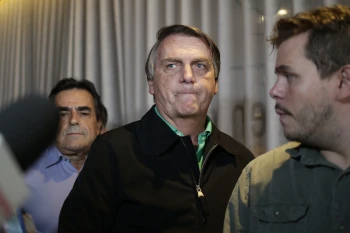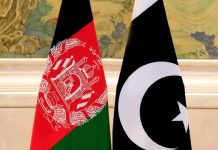Brazil’s former President Jair Bolsonaro has been disqualified from running for office until 2030 following a ruling by a panel of judges. The decision was based on findings that Bolsonaro abused his power and spread groundless doubts about the country’s electronic voting system.
The judgment effectively ends Bolsonaro’s chances of returning to the presidency, reshaping his political future significantly. Five judges on Brazil’s highest electoral court agreed that Bolsonaro had used government communication channels to promote his campaign and fostered distrust in the electoral process. Only two judges opposed the decision.
The case centered around a meeting held on July 18, 2022, during which Bolsonaro used government resources to allege that the electronic voting system was rigged. In a significant majority ruling, Judge Carmen Lucia, who is also a Supreme Court justice, deemed the evidence “incontrovertible,” confirming the occurrence of the meeting and Bolsonaro’s actions.
Bolsonaro, a prominent figure in Brazil’s right-wing politics, expressed disappointment with the trial’s outcome, considering it unfair and politically motivated. However, political analysts believe that the likelihood of overturning the decision is very low. The ruling not only prevents Bolsonaro from participating in the upcoming municipal and general elections but also exposes him to other legal challenges, including criminal investigations that could prolong his ineligibility and even lead to imprisonment.
The decision marks the first time a Brazilian president has been barred from elections due to electoral violations rather than a criminal offense. Under Brazilian law, candidates with criminal convictions are prohibited from running for office.
Supporters of Bolsonaro have shown online solidarity, likening his situation to that of former U.S. President Donald Trump, but the engagement levels are lower than during the polarizing 2022 presidential election. Bolsonaro’s role in inciting a January 8 uprising after Lula’s election victory is under investigation, adding further legal complexities to his situation.
While Bolsonaro may continue to play a leadership role within his Liberal Party, his influence has weakened, and he has faced criticism for leaving the country at the beginning of Lula’s term. His decision to stay in Florida during this period has diminished his standing as the leader of the opposition.
In the wake of the ruling, Bolsonaro’s ineligibility has been celebrated by some, who believe it is a necessary step to uphold democratic processes in the country. However, there are concerns that Bolsonaro’s supporters may appeal the decision, and some fear that he could still attempt to influence future presidential elections.
The Brazilian political landscape is likely to see further developments following this landmark ruling, as Bolsonaro’s disqualification from the presidency has significant implications for the country’s future political dynamics.






